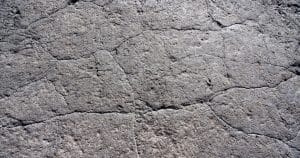Welcome to Utah Boulder Walls! Boulder walls are not just beautiful additions to outdoor spaces; they are also remarkable feats of engineering. In this comprehensive guide, we will delve into the science behind boulder wall stability and durability. Understanding the principles that govern these structures will help you appreciate their strength and longevity.
The Engineering of Boulder Walls
Boulder walls are engineered structures designed to withstand the forces of gravity, soil pressure, and environmental factors. They rely on sound engineering principles to ensure stability and long-term durability.
Key Principles of Stability
Stability in boulder walls is achieved through a combination of factors, including proper grading, interlocking stones, and the use of mass. These principles work together to resist the lateral pressure exerted by the soil and other external forces.
Materials and Geology
The choice of boulder materials and an understanding of geological factors are fundamental to boulder wall stability. Different types of boulders have varying degrees of hardness, weather resistance, and durability. Geological considerations such as soil composition and groundwater levels also play a crucial role.
Proper Grading and Drainage
Proper grading of the site and drainage management are essential to prevent water from accumulating behind the wall. Water buildup can exert significant pressure on the wall and compromise its stability over time.
Interlocking and Mass
Interlocking boulders create friction between stones, increasing stability. Additionally, the mass of the boulders themselves contributes to the wall’s resistance against soil pressure. The careful arrangement of stones ensures they work together to distribute the load.
Gravity and Structural Integrity
Boulder walls rely on gravity for their stability. The weight of the stones and their proper placement ensure that the wall resists the lateral forces applied to it. Structural integrity is crucial in boulder wall design, with each stone contributing to the overall stability.
Long-Term Durability
To ensure long-term durability, boulder walls require periodic maintenance. This includes inspecting for loose stones, addressing erosion, and managing vegetation growth. Regular care ensures that the wall remains structurally sound and visually appealing.
FAQs
What are the scientific principles that ensure boulder wall stability?
Scientific principles such as proper grading, interlocking, mass, and gravity contribute to boulder wall stability.
How do geological factors influence boulder wall construction?
Geological factors like soil composition and groundwater levels impact material choice and construction methods.
Can I build a stable boulder wall on my own?
While some DIY enthusiasts may attempt boulder wall construction, professional expertise is recommended to ensure stability and longevity.
What maintenance is needed to ensure the long-term durability of a boulder wall?
Maintenance includes regular inspections, addressing erosion, managing vegetation, and ensuring proper drainage.
Where can I find experts in boulder wall engineering?
For expert guidance in boulder wall engineering, please contact us at 385-417-3854 or visit our website here.




